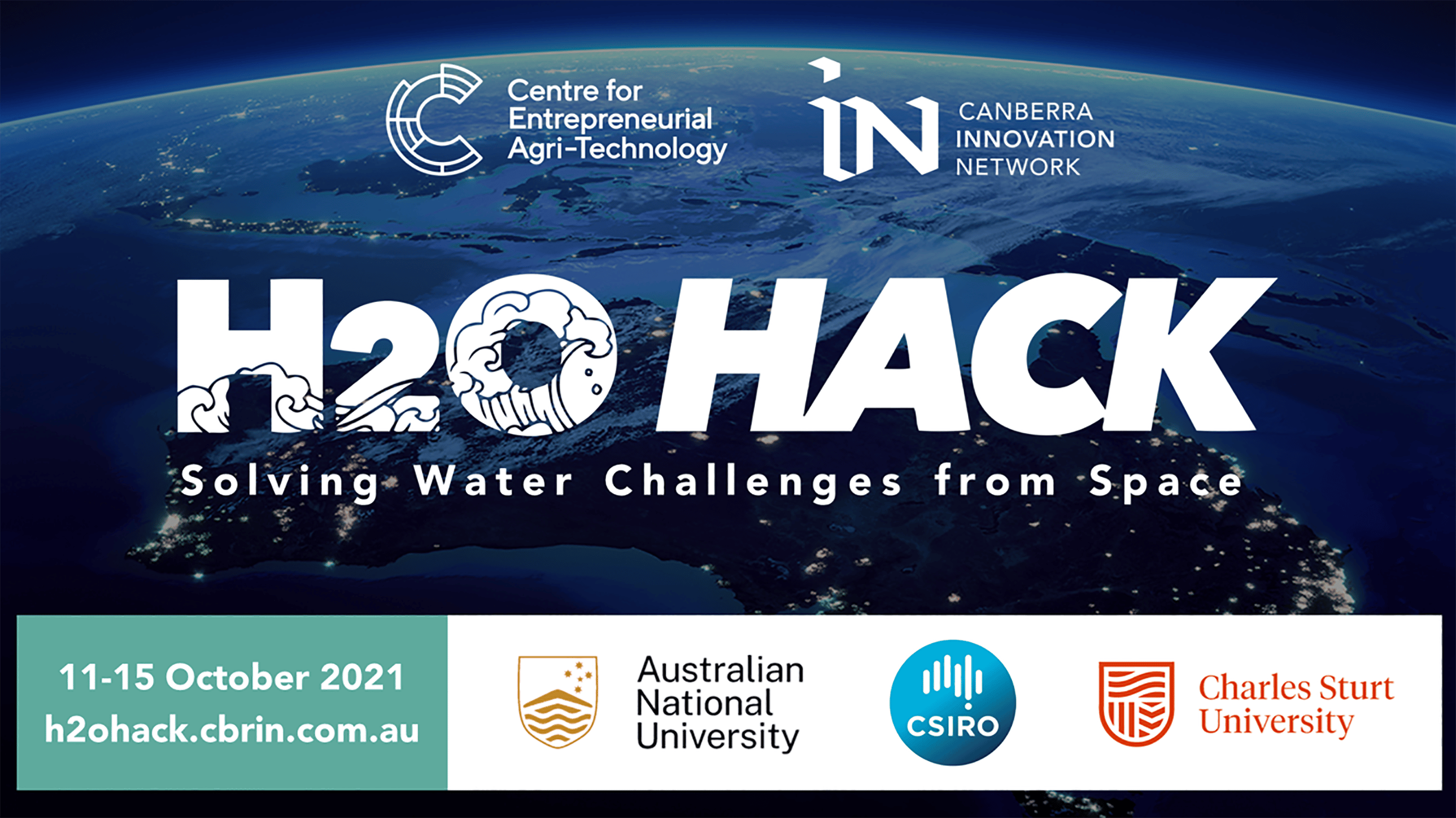When most people think of space tech, they think of rockets, space stations and satellites. What most people don’t know is how much of life on Earth is influenced by this technology. Yet satellite enabled technology like remote sensing, geolocation and increased connectivity are increasingly important for many aspects of terrestrial life, including agriculture and water management. 4-10 October marks the 2021 World Space Week, which recognises at the international level the contributions of space science and technology to the betterment of the human condition.
In alignment with this purpose, from 11-15 October, the Centre for Entrepreneurial Agri-Technology at The Australian National University, the Canberra Innovation Network (CBRIN) and the Institute for Water Futures, in partnership with the ANU Institute for Space, CSIRO and Charles Sturt University, are running the ‘H2O Hack: solving water challenges from space’ online hackathon to help stimulate and develop solutions to address Australia’s water management challenges.
The event is open to teams across Australia and overseas, as the virtual platform will allow anyone to participate. The hack aims to help teams germinate innovative ways of using existing space technologies such as Earth observation, geolocation and connectivity to improve water management in agriculture, farming and regional communities, whether in flood or drought. Examples of space technology already in use in regional areas include virtual fencing, soil moisture measurement programs and remote monitoring of water supplies. However, there are many more possible applications of space technology to address water challenges, and we hope to promote a collaborative, interdisciplinary approach to the hack. Fostering collaboration across disciplinary silos is at the heart of what CEAT does, and we are pleased to see this approach employed effectively to tackle such a major problem in Australia.
Following the hackathon, highly-ranked teams will have the opportunity to access an incubation program at CBRIN, attend CEAT ANU-mediated workshops, enabling them to develop connections with researchers and industry, and participate in the CEAT Innovation Hub. This will give them the opportunity to commercialise their products, and start making them available to the wider agrifood and agricultural community.
To find out more about the hackathon visit the website.
If you’d like to know more about CEAT and what we offer, send us an email at [email protected].
